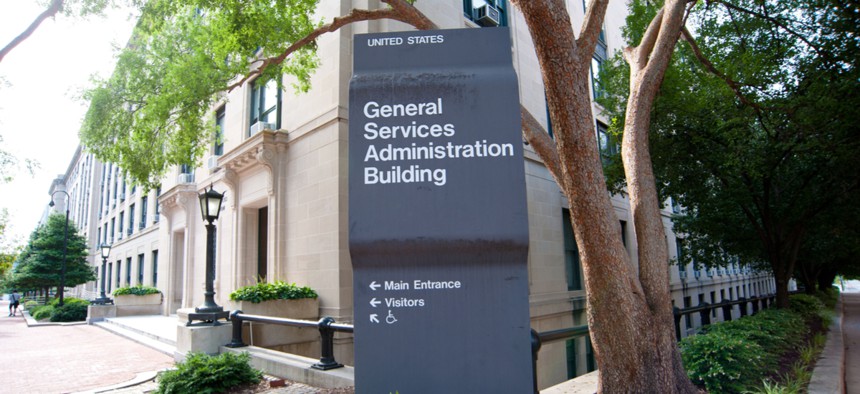GSA, OPM Nominees Pledge to Build Public Trust Through Open Data Programs

Rena Schild/Shutterstock.com
Emily Webster Murphy, GSA administrator nominee, pledged to expand open data programs while Jeff Pon, OPM director nominee, said he promised to ramp up information security efforts.
A Senate committee Wednesday scrutinized the people nominated to lead two agencies responsible for major technology projects.
Emily Webster Murphy, nominated to lead the General Services Administration, and Jeff Pon, the White House’s choice for the Office of Personnel Management head, both sketched out broad technology goals during a Homeland Security and Governmental Affairs confirmation hearing, which include doubling down on open data programs and providing better cybersecurity training for employees.
If confirmed as the head of the federal government’s buying hub, Murphy plans to share more data about GSA’s business opportunities in real estate and technology, she said.
» Get the best federal technology news and ideas delivered right to your inbox. Sign up here.
Improving transparency by potentially providing a database of federal real property assets or making data more available at Data.gov would not only “expose flaws and instill confidence in the integrity of our government,” but also “increase competition,” she said.
She also plans to reduce duplicative contracts issued by GSA, which could potentially make it easier for contractors to bid, and also reduce “risks associated with managing outdated systems.”
Broadly, Murphy said, she hopes to create within GSA a “safe culture for reporting misconduct.”
Pon faced questions about OPM’s cybersecurity, which the agency continues to struggle with after the 2015 data breach that exposed personal information from background checks belonging to more than 22 million people. Pon said he planned to implement any remaining watchdog recommendations to ramp up information security.
“We will make sure we not only have qualified people, but we have a plan to execute and deter the risks that we have,” he said during the hearing. OPM’s goal, he said, should be to prioritize security threats and inform the people who might be affected, and it’s not “acceptable to me to have people that are not trained in the current ways in which we protect our data.”
“We need to up our game,” he added.
Michael Rigas, nominated to be deputy director at OPM, said he planned to work with the agency’s chief information officer and chief information security officer to assess progress in information security programs and determine “if we need to change course or if we are on track to meet security and data protection needs that the federal government demands.”
OPM could one day have one unified human resources system that could process an individual’s file from the day they apply to a government job to the day they retire—the technology exists—but the agency isn’t quite ready for it, Pon explained later in the hearing.
“The technology is not the problem,” he said. “It’s actually making sure we execute on putting things together and simplifying… making sure the transactional data you need can actually be transacted in an efficient and effective manner.”
Sen. James Lankford, R-Okla., noted that some agencies take up to 400 days to hire staff, and their files go through several different databases in that process. “We desperately need someone to … help us work that process out.”
In an otherwise smooth hearing, Sen. Ron Johnson, R-Wis., threatened to hold up the nominations of Pon and Rigas due to a long-standing request for documents about an OPM rule that allows congressional employees to buy Affordable Care Act insurance and receive an employer subsidy.





